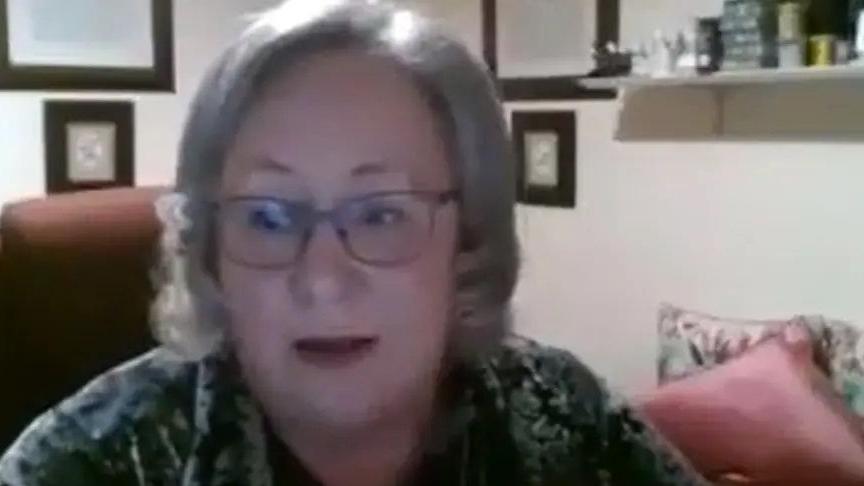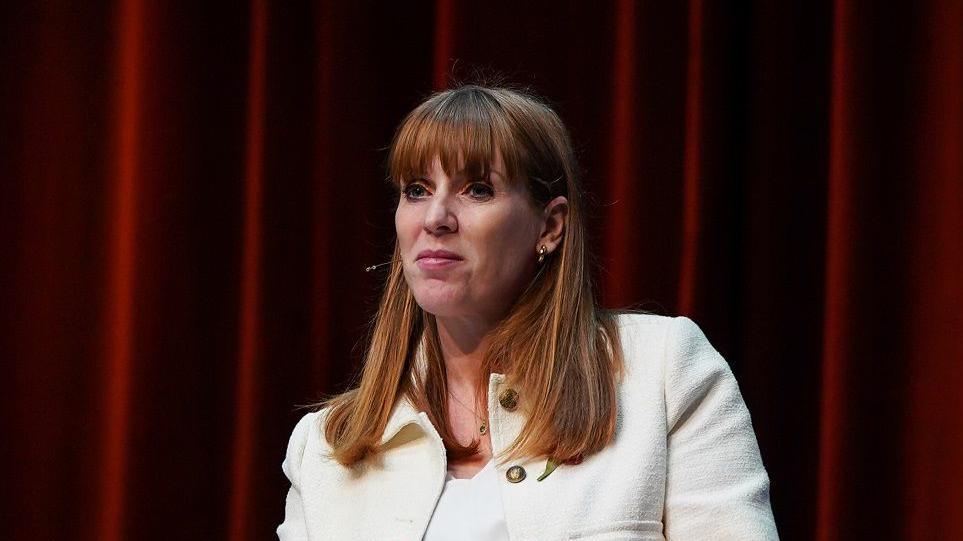Councillors to be allowed to work from home

Jackie Weaver went viral when she kicked two councillors out of a virtual meeting
- Published
Councillors in England will be allowed to take part in debates from home using their computers, Deputy Prime Minister Angela Rayner has announced.
At the moment all local councillors are required by law to attend certain meetings in person.
The rules were suspended during the Covid pandemic, which led to Parish Council officer Jackie Weaver briefly becoming a social media sensation.
The Zoom meeting she was taking part in, in early 2021, erupted into fury, with Ms Weaver being told she had “no authority here” after she kicked two councillors out of the meeting.
The law change allowing council meetings to be held remotely expired on 6 May 2021.
Warning local democracy at risk over personal abuse
- Published5 February 2024
Town Hall debt levels staggering, MPs warn
- Published16 January 2024
Right to WFH boosts productivity, Labour says
- Published17 September 2024
At the time, Ms Weaver joined calls to keep virtual meetings as an option, saying scrapping them would be a "dreadful idea".
Under the proposed new rules, councillors will also be allowed to vote on behalf of others who can’t attend debates, such as for childcare or health reasons.
Rayner told local government chiefs it would be up to them to “decide whether councillors should attend your meetings remotely or use proxy votes when they need to”.
Speaking at the Local Government Association’s (LGA) annual conference in Harrogate, the deputy prime minister said she would “[make] it possible for people from all walks of life to have a stake in local democracy, whether they have caring responsibilities or aren’t able to make it to the town hall in person because of illness or disability”.
The government has published a public consultation on the proposals.
Last year an LGA survey of around a third of English councils found nine in 10 had councillors who would make use of virtual meetings if allowed.
It comes as Whitehall civil servants were told they should be spending at least three days a week working in the office.
Councillors will no longer have to make their home addresses public, Rayner also confirmed.
The LGA had previously pushed for ending the legal obligation to publish addresses amid a rise in abuse and intimidation faced by local councillors.

Angela Rayner was speaking at the Local Government Association conference
Rayner, who is also the Secretary of State for Housing, Communities and Local Government, said she would allow councils to suspend local councillors for bad behaviour.
She said she had been occasionally been "made aware of cases of persistent bullying and harassment by councillors, even in some case leading to victims resignations”.
Rayner also reiterated that the government will return to giving councils multi-year funding settlements.
The Conservatives had been agreeing funding on a yearly basis, which councils said made it hard to plan their budgets.
She also said she will end local authorities having to compete against each other for government grants.
But there was no hint that any more money might be in store for cash-strapped councils in the Budget next week.
One in four councils say they are likely to need an emergency bailout from the government within the next two years without more cash now.